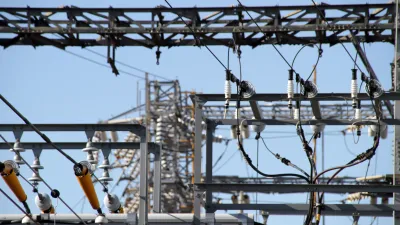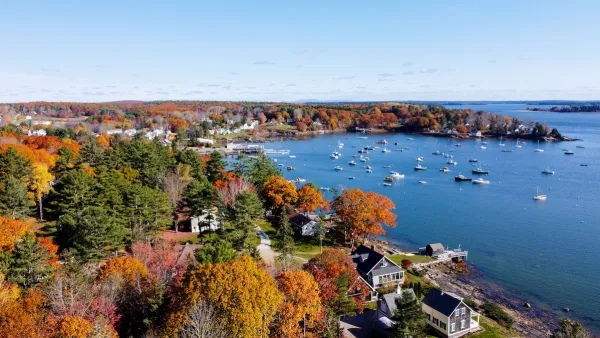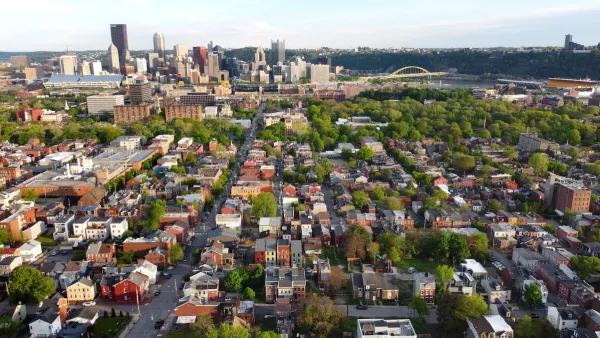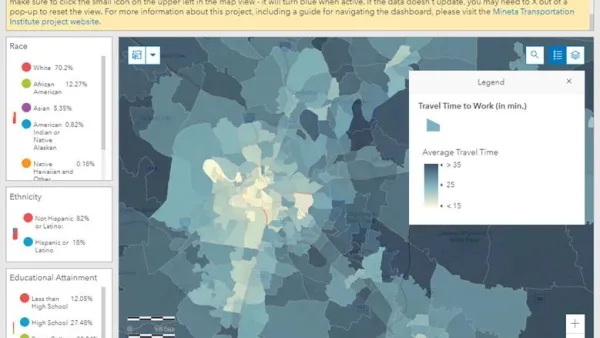In the next few decades, U.S. governments and businesses are predicted to spend trillions of dollars on infrastructure. This is the reality. The question is: how do we get smart about these investments?

Infrastructure—for many people it’s a boring word. But if the power goes out, traffic is snarled, the water faucet runs dry, or the toilet won’t flush—even for just a couple of days—the vital importance of our infrastructure systems can suddenly come into focus.
The United States will need to spend over $3 trillion on infrastructure in the next decade just to keep our nation’s vital systems, like energy, transportation, water, and waste, in working order, according to experts. Will we spend that money wisely, investing in creative new approaches and sustainable innovation which will be better for the environment and more affordable?
The Evergreen State College has launched the Center for Sustainable Infrastructure (CSI) with a goal of developing innovative solutions to these massive public works challenges. Based at the college’s Olympia campus, the Center links regional innovators, advocates sustainable best practices, and develops skilled professionals who will put these principles to work in infrastructure development.
The Center envisions a future for the region where sustainable, resilient, and affordable infrastructure systems provide vital services accessible to all, supporting healthy, prosperous, beautiful, and cohesive communities. But a shift of this magnitude will be not be easy. A wide range of professions have a role to play, from the leaders of infrastructure agencies and utilities, to community planners and elected officials, builders and design teams, engineers and technology firms, financiers and lenders, advocates and regulators. The Center aims to develop tools and programs that will prove useful to them as they help Northwest communities transform how they think about, plan for, and invest in their infrastructure assets.
The CSI's new report, Infrastructure Crisis, Sustainable Solutions: Rethinking Our Infrastructure Investment Strategies distills the insights from 70 of the Pacific Northwest’s top infrastructure innovators and thought leaders to discover how we can best transform the way we invest in these vital systems.
FULL STORY: Infrastructure Crisis, Sustainable Solutions: Rethinking Our Infrastructure Investment Strategies

Analysis: Cybertruck Fatality Rate Far Exceeds That of Ford Pinto
The Tesla Cybertruck was recalled seven times last year.

National Parks Layoffs Will Cause Communities to Lose Billions
Thousands of essential park workers were laid off this week, just before the busy spring break season.

Retro-silient?: America’s First “Eco-burb,” The Woodlands Turns 50
A master-planned community north of Houston offers lessons on green infrastructure and resilient design, but falls short of its founder’s lofty affordability and walkability goals.

Test News Post 1
This is a summary

Analysis: Cybertruck Fatality Rate Far Exceeds That of Ford Pinto
The Tesla Cybertruck was recalled seven times last year.

Test News Headline 46
Test for the image on the front page.
Urban Design for Planners 1: Software Tools
This six-course series explores essential urban design concepts using open source software and equips planners with the tools they need to participate fully in the urban design process.
Planning for Universal Design
Learn the tools for implementing Universal Design in planning regulations.
EMC Planning Group, Inc.
Planetizen
Planetizen
Mpact (formerly Rail~Volution)
Great Falls Development Authority, Inc.
HUDs Office of Policy Development and Research
NYU Wagner Graduate School of Public Service




























